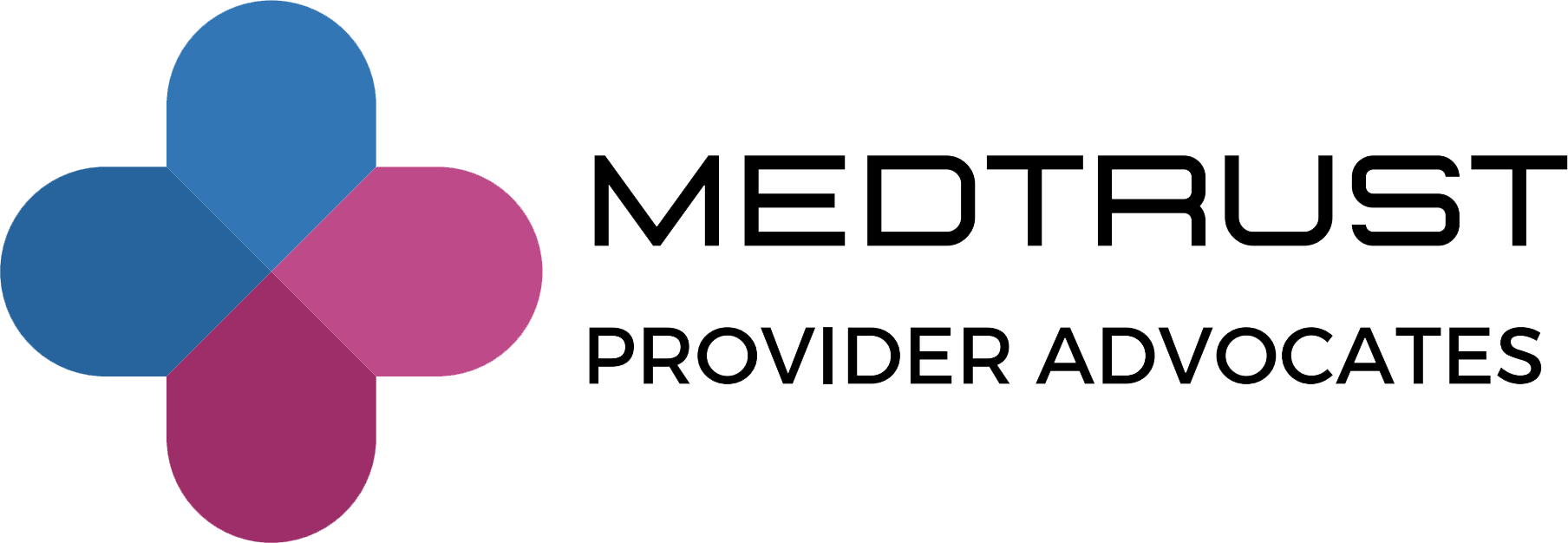Artificial Intelligence and Healthcare Credentialing
medtrust
on
June 8, 2025
Artificial Intelligence and Healthcare Credentialing

Artificial Intelligence (AI) is significantly impacting healthcare credentialing, moving it from a traditionally cumbersome and manual process to a more efficient, accurate, and secure one. Here’s a breakdown of AI’s role:
How AI is Transforming Healthcare Credentialing:
- Automated Document Processing (IDP): AI, utilizing Optical Character Recognition (OCR) and Natural Language Processing (NLP), can automatically extract and interpret data from various credentialing documents (licenses, certifications, transcripts, work history), reducing manual data entry and errors.
- AI-Powered Primary Source Verification (PSV): AI platforms can directly connect with primary sources (licensing boards, medical schools, NPDB) for real-time verification of provider credentials, drastically cutting down verification times.
- Continuous Monitoring: AI systems can continuously track changes in a provider’s credentials (license status, sanctions) from various databases, providing timely alerts for potential issues.
- Enhanced Accuracy and Compliance: Machine learning algorithms cross-reference data to identify inconsistencies and ensure consistent application of credentialing criteria, while also staying updated with evolving regulations.
- Predictive Analytics and Risk Management: AI can analyze historical data to predict potential delays, identify fraudulent credentials, and assign risk scores to applications for focused review.
- Streamlined Workflow and Task Management: AI can automate the routing of tasks, generate reminders, and provide AI-powered virtual assistants to guide providers through the process.
- Integration with Other Systems: AI-driven platforms can integrate with HR, EHRs, and payer systems for seamless data sharing.
- Bias Detection and Mitigation: Emerging AI tools can analyze credentialing criteria to identify and mitigate potential biases.
Benefits of Integrating AI in Credentialing:
- Faster Turnaround Times: Automation accelerates verification and overall processing. Some organizations have reported reducing credentialing time from 60 days to as little as 5 days.
- Improved Accuracy: AI minimizes human errors in data handling and verification.
- Reduced Administrative Costs: Automation decreases the need for manual labor and paper-based processes, with some reporting up to 80% reduction in administrative costs.
- Enhanced Efficiency: Staff can focus on complex tasks rather than routine data entry.
- Better Provider Experience: Streamlined processes and faster onboarding improve provider satisfaction.
- Increased Compliance: AI helps adhere to complex and changing regulations.
- Enhanced Patient Safety: Thorough and continuous verification ensures qualified providers.
- Fraud Detection: Machine learning models are trained to detect anomalies and patterns indicative of fraudulent credentials, enhancing the integrity of the credentialing process. AI-powered security protocols, especially when combined with blockchain technology, ensure that sensitive credentialing data is encrypted, immutable, and accessible only to authorized parties.
Challenges and Considerations for AI Adoption:
- Data Quality and Standardization: AI relies on accurate and standardized data.
- Integration with Legacy Systems: Integrating new AI with older systems can be complex and costly.
- Privacy and Security Concerns: Protecting sensitive provider data is crucial.
- Regulatory Frameworks: Clearer regulations for AI in credentialing are still developing. https://www.ncsl.org/technology-and-communication/artificial-intelligence-2025-legislation
- Ethical Considerations and Algorithmic Transparency: Ensuring fairness and accountability in AI algorithms is essential.
- Need for Human Oversight: Human expertise remains vital for complex decisions.
- Cost of Implementation: Initial investment in AI solutions can be significant.
- Resistance to Change: Proper training and change management are necessary.
Current Trends (May 2025):
- Hyper-automation: Combining AI with Robotic Process Automation (RPA) for end-to-end workflow automation.
- Intelligent Continuous Monitoring: Integrating more diverse data sources for real-time risk assessment.
- AI-Driven Risk Scoring: Advanced algorithms identifying subtle risk patterns.
- Personalized Provider Onboarding with AI Assistants: AI guiding providers through the process.
- Predictive Analytics for Staffing: Using AI to anticipate staffing needs.
- Enhanced Fraud Detection: AI identifying sophisticated fraud attempts.
- Integration with Blockchain: Combining AI with blockchain for secure and immutable credential records.
AI is revolutionizing healthcare credentialing by automating tasks, improving accuracy, and enhancing security. While challenges to adopt exist, the increasing integration of AI promises a more efficient and reliable future for verifying healthcare professionals.

